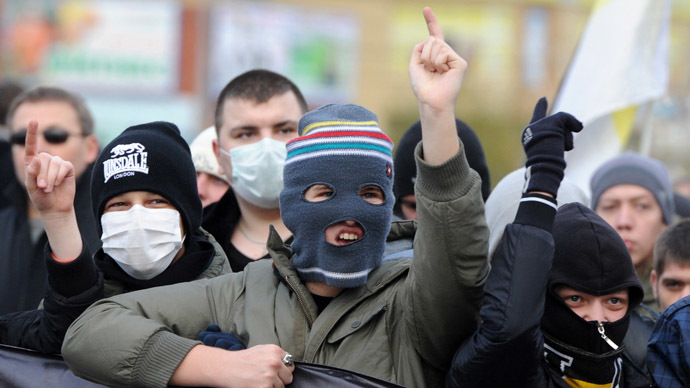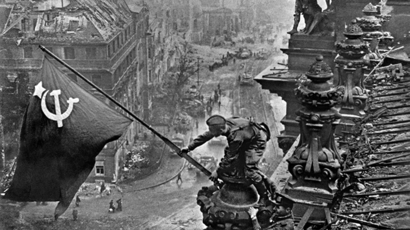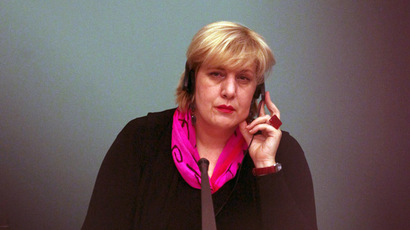Duma gives first nod to ban on Nazi rehabilitation

The Russian Lower House has passed the first reading of a bill introducing prison sentences for the public justification of Nazism. The sponsors would like to sign it into law before May 9 – the anniversary of Russia’s victory in WWII.
The bill was approved unanimously on Friday.
“Our country has not simply defended itself. We have defended the whole world from Nazism. Our people suffered the greatest casualties in this war. For us, the rehabilitation of Nazism will always be a crime against our country and our people. Rehabilitation of Nazism is not only a shot fired at the past and mocking millions of victims. It is also a shot fired at the future, an instigation for new crimes against peace and security,”one of the main sponsors of the bill, the head of the Lower House Committee for Security Irina Yarovaya said as she presented the bill to MPs.
Earlier, Yarovaya has told the press that the urge for such a law is especially evident today in times of the violent political crisis in Ukraine launched and supported by radicals and neo-Nazis. “Ukraine is a living witness of what can be the result of such a policy, when Nazism is standing tall and manifests itself not only through propaganda but through actual crimes,” the Interfax news agency quoted the lawmaker as saying.
Once passed the bill would make it illegal to publicly deny the Nuremberg Tribunal verdict and the anti-Hitler coalition’s effort to defend international peace and security during the Second World War. The ban is also extended to knowingly spreading false reports about the crimes of anti-Nazi armies during the war and the fabrication of proof of such crimes.
Those convicted face fines of up to 300,000 rubles (about $8300) or prison terms of up to 3 years. The use of public office or the media raises the maximum punishment to 500,000 roubles in fines or up to 5 years behind bars with a ban from certain posts and professions for another 3 years.
The bill was initially drafted several years ago by majority United Russia caucus. The initial version drew criticism from professional lawyers over the preciseness of various legal formulas and was recalled. The new draft was submitted for public discussion in Summer 2014 and has already received an approval from the Supreme Court and support from all four parliamentary parties.
The new bill, however, has drawn criticism from OSCE's Representative on Freedom of the Media, who said that the narrow application of such a law might lead to its abuse and suppress political and critical speech on issues of history. Russia’s Foreign Ministry blasted this statement as intervention into another nation’s legislative process and the bill’s sponsors said that many foreign nations had similar legislation protecting the historical truth as stated by the Nuremberg Tribunal.














